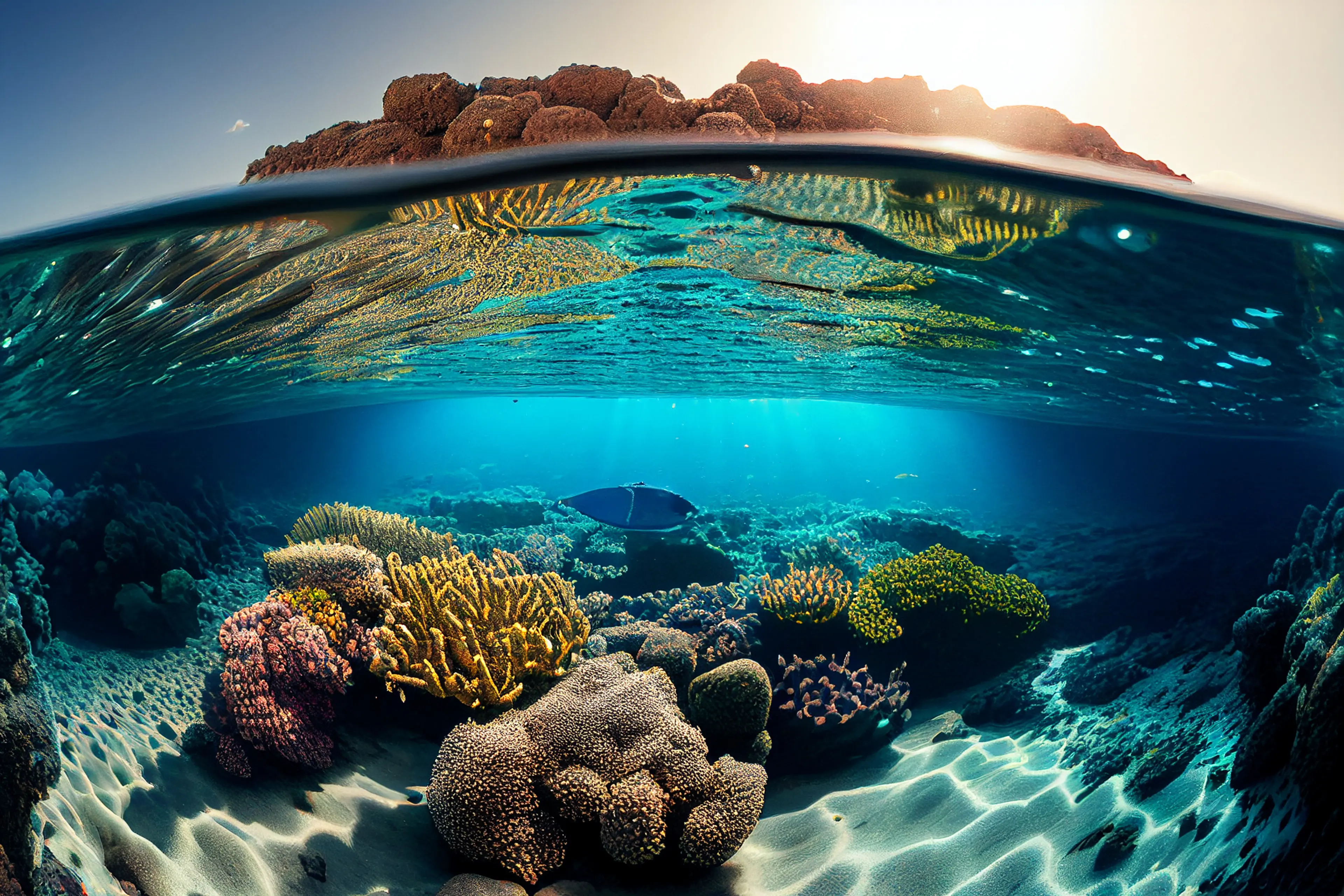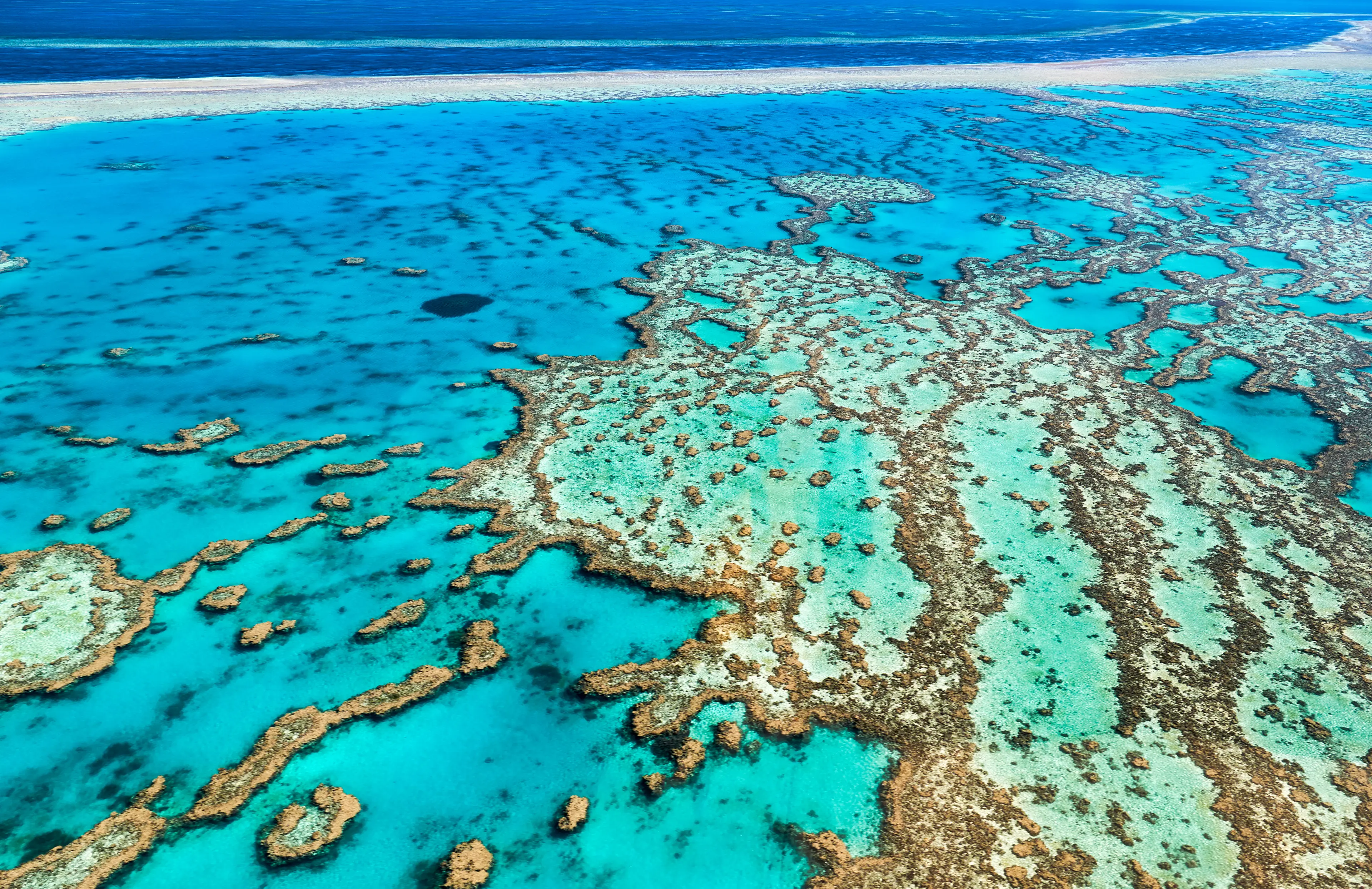2-Day Great Barrier Reef Adventure: Outdoor Activities & Nightlife with Friends
Great Barrier Reef, Australia
2 days
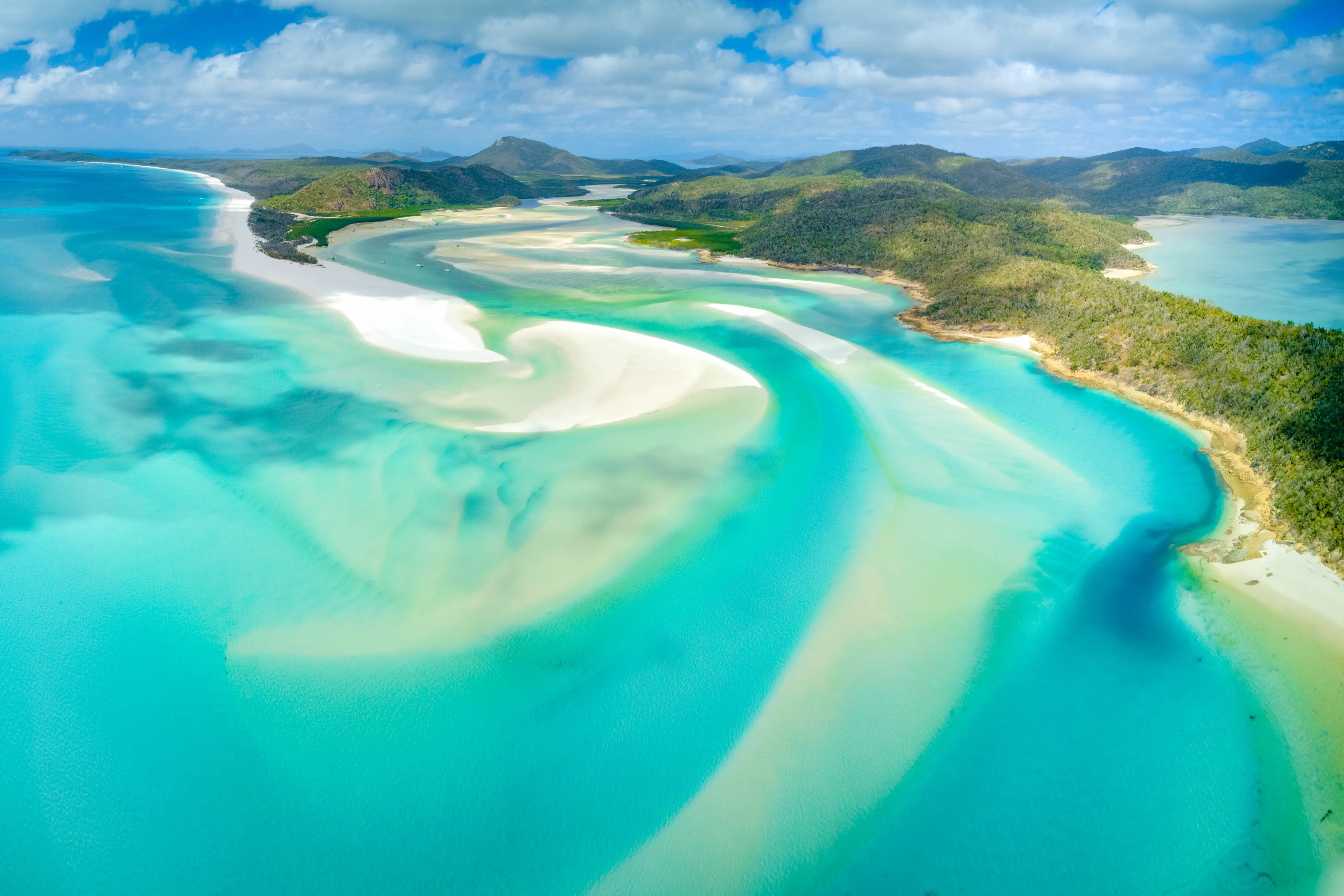
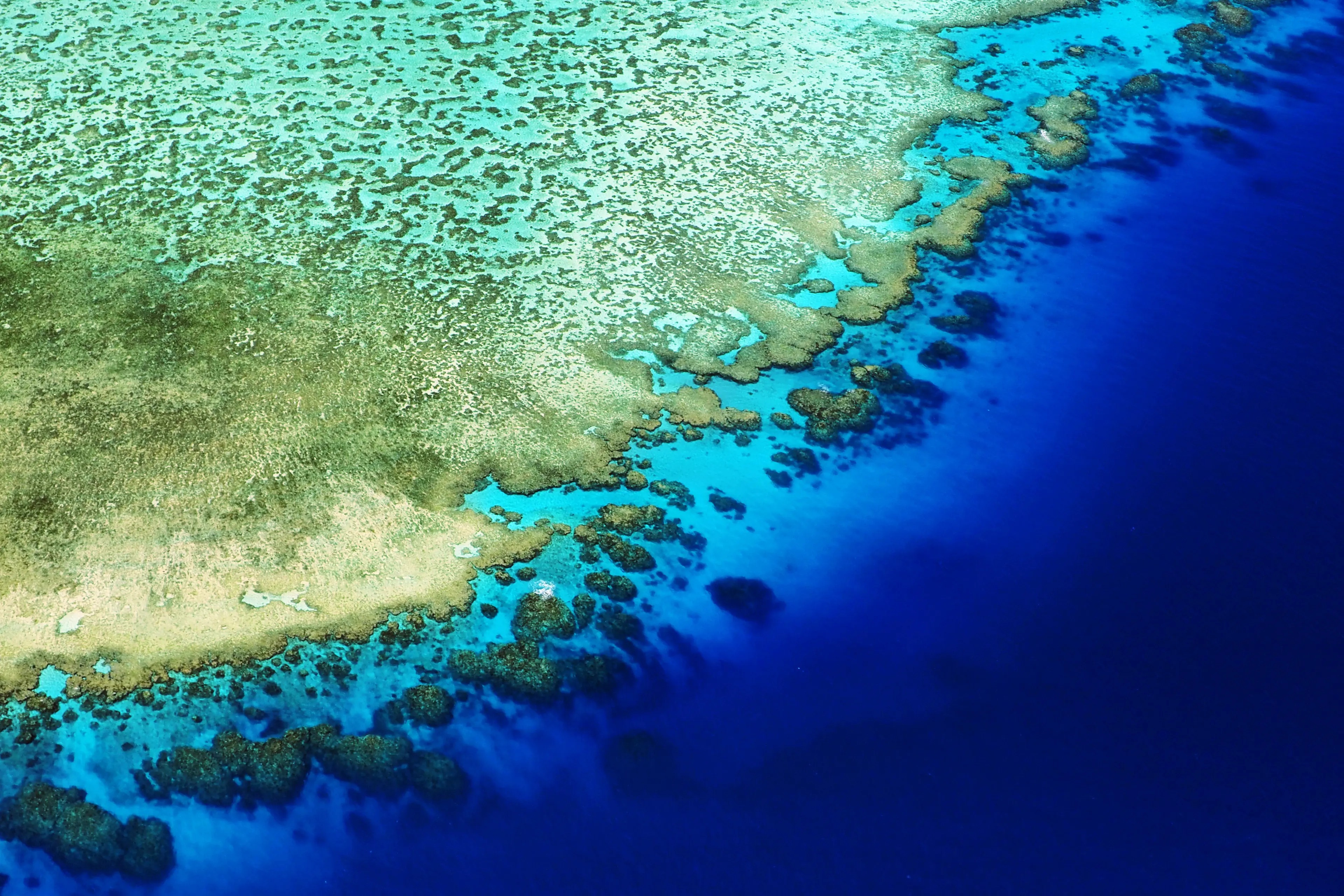


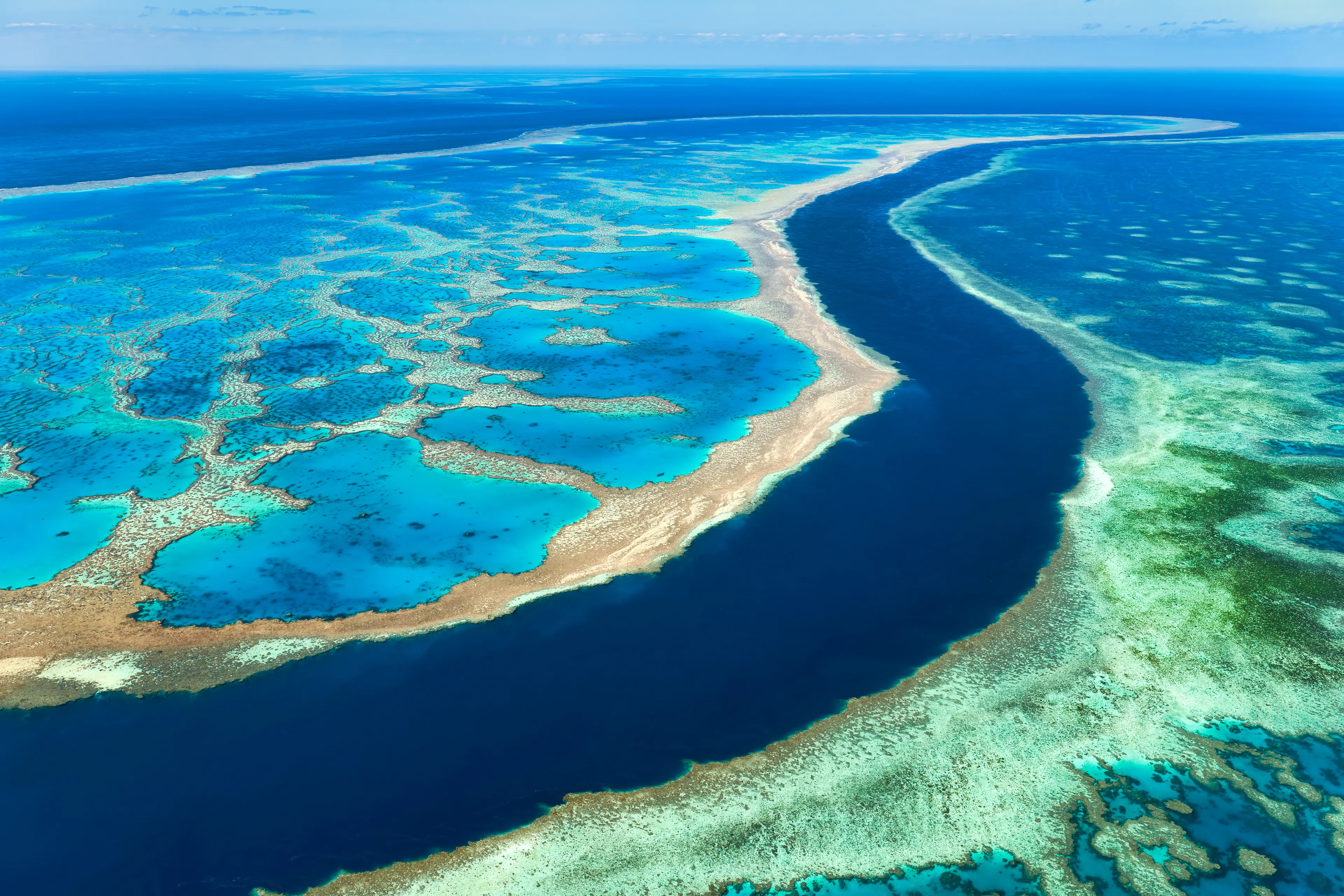
About Great Barrier Reef, Australia
Explore the breathtaking beauty of the Great Barrier Reef, Australia's natural wonder. This UNESCO World Heritage site is the world's largest coral reef system, hosting a diverse marine life. Embark on a snorkeling or diving adventure to witness the vibrant coral gardens and exotic sea creatures. Take a scenic helicopter ride for a panoramic view of the reef or sail on a glass-bottom boat for a unique underwater experience. Visit the nearby tropical islands like Whitsundays and Hamilton Island for pristine beaches and luxury resorts. The Great Barrier Reef is not just about underwater exploration, it's also a gateway to rainforest treks and wildlife encounters. Experience this unique blend of adventure and tranquility in Australia's most iconic destination.
2-Day Itinerary
Day 2
Aerial Views and Island Escapades
Morning
Start your second day with a Sunrise Hot Air Balloon Ride. Witness the breathtaking views of the reef and the surrounding islands from the sky.
Lunch
Have a BBQ lunch on a private island. Enjoy the fresh catch of the day, grilled to perfection, along with local fruits and beverages.
Afternoon
Take a Scenic Helicopter Tour of the reef. Capture stunning aerial views of the reef's vast expanse and its vibrant colors.
Dinner
Savor a Beachfront dinner with a spectacular view of the sunset. Enjoy a variety of local dishes, including fresh seafood and tropical fruits.
Evening
End your trip with a night cruise on the reef. Enjoy the serene beauty of the reef under the moonlight, with a glass of local wine in hand.
Attractions in Itinerary (5)

1Great Barrier Reef
The Great Barrier Reef is the world's largest coral reef system composed of over 2,900 individual reefs and 900 islands stretching for over 2,300 kilometres.

2Night dive
Night diving in the Great Barrier Reef offers a unique perspective on the reef's nocturnal marine life, including bioluminescent organisms.

3Sunrise Hot Air Balloon Ride
Experience the breathtaking beauty of the Great Barrier Reef and surrounding landscapes from above with a sunrise hot air balloon ride.

4Scenic Helicopter Tour
Take to the skies for a breathtaking helicopter tour over the Great Barrier Reef. See the reef, rainforest, and surrounding islands from a whole new perspective.

5Beachfront
The pristine beachfronts along the Great Barrier Reef offer stunning views, opportunities for water sports, and a chance to relax in the Australian sun.
Local Food and Drinks (12)

Barramundi
A popular local fish in the Great Barrier Reef region, often grilled or fried and served with chips.

Moreton Bay Bug
A type of lobster native to the waters of the Great Barrier Reef, typically served grilled or in salads.

Balmain Bug
Another variety of lobster found in the region, usually served in a similar fashion to the Moreton Bay Bug.

Mud Crab
A local delicacy, often caught fresh and cooked in a variety of ways, including steamed or in a chilli crab dish.

Kangaroo Meat
While not specific to the Great Barrier Reef, kangaroo meat is a must-try for visitors to Australia. It's often served as steaks, in a burger, or in a stew.

Damper
A traditional Australian bread, typically baked in the coals of a campfire. It's a staple food of the indigenous people of Australia.

Lamington
A classic Australian dessert, made of sponge cake coated in chocolate and desiccated coconut. It's a sweet treat not to be missed.

Pavlova
A meringue-based dessert named after the Russian ballerina Anna Pavlova. It's a popular dish in Australia and a must-try for any visitor.

Bundaberg Rum
A dark rum produced in Bundaberg, a city located near the southern end of the Great Barrier Reef. It's often enjoyed neat or in cocktails.

XXXX Gold
A popular mid-strength beer in Australia, brewed in Queensland. It's a refreshing choice after a day of exploring the reef.

Flat White
A coffee beverage that originated in Australia. It's similar to a latte, but with less milk and more espresso.

Macadamia Nuts
Native to Australia, these nuts are often eaten raw or used in a variety of dishes, from desserts to main courses.
Best time to visit
The best time to visit the Great Barrier Reef, Australia is during the late spring and early autumn, specifically from June to October. During these months, the weather is mild and rainfall is less likely, providing optimal conditions for outdoor activities such as snorkeling and scuba diving. The water temperatures are also quite comfortable, ranging from 24-29°C (75-84°F). This period also coincides with the Australian winter, which means fewer crowds and more availability for accommodations and tours.
How to get around
Flight
The Great Barrier Reef is accessible via flights to Cairns Airport, which is the closest international gateway to the reef. From there, you can take a smaller plane or helicopter tour to get a bird's eye view of the reef.
Boat
Boat tours are the most common way to explore the Great Barrier Reef. They depart from various locations, including Cairns, Port Douglas, and the Whitsunday Islands. These tours can range from half-day trips to multi-day liveaboard experiences.
Ferry
Regular ferry services operate from Cairns to the Great Barrier Reef's islands such as Green Island and Fitzroy Island. These islands offer snorkeling, diving, and other reef activities.
Car
If you're staying in Cairns or Port Douglas, you can rent a car to explore the surrounding areas. However, keep in mind that you cannot drive to the reef itself as it is located off the coast.
Bus
There are bus services that operate in Cairns and Port Douglas, providing transport to and from the marinas where boat tours depart.
Train
The scenic Kuranda Scenic Railway and the Skyrail Rainforest Cableway offer unique ways to explore the rainforests near the Great Barrier Reef, but they do not provide direct access to the reef itself.
Rideshare
Rideshare services, such as Uber, are available in Cairns and Port Douglas. They can be a convenient way to get to and from your accommodation and the marinas where boat tours depart.
Snorkeling and Diving
Once you're at the reef, snorkeling and diving are the best ways to explore the underwater world. Many boat tours include snorkeling or diving equipment.
Sailing
Chartering a private yacht or joining a sailing tour can provide a unique and leisurely way to explore the Great Barrier Reef.
Seaplane or Helicopter
For a truly unforgettable experience, consider a seaplane or helicopter tour of the Great Barrier Reef. These tours offer stunning aerial views of the reef and its islands.
Important information
Currency$ AUD
Time zoneUTC+10
Driving sideLeft
Emergency phone000 (112 on cell phone)
Drinking waterYes
Power sockets
Voltage230 V
Things to know about Great Barrier Reef, Australia as a first time visitor
1
The Great Barrier Reef is the world's largest coral reef system, stretching over 2,300 kilometers.
2
The reef is located in the Coral Sea, off the coast of Queensland, Australia.
3
The Great Barrier Reef is a UNESCO World Heritage site and one of the seven wonders of the natural world.
4
The reef is home to a wide variety of marine life, including over 1,500 species of fish, 400 types of coral, 4,000 species of mollusks, and over 200 types of birds.
5
The best time to visit the Great Barrier Reef is from June to October, when the weather is mild and the water is clear.
6
The average water temperature in the Great Barrier Reef ranges from 24°C (75°F) in the winter to 30°C (86°F) in the summer.
7
Snorkeling and diving are the most popular activities in the Great Barrier Reef. However, you should always follow safety guidelines and respect the marine life.
8
The reef is under threat from climate change, pollution, and overfishing. As a visitor, you can help protect the reef by following sustainable tourism practices.
9
There are strict regulations in place to protect the reef. For example, fishing is prohibited in certain areas and you are not allowed to touch or stand on the coral.
10
The Great Barrier Reef Marine Park Authority (GBRMPA) manages the reef and provides up-to-date information on the health of the reef and guidelines for visitors.
11
There are many tour operators that offer trips to the reef. It's important to choose a reputable operator that follows sustainable practices.
12
If you're planning to dive, you'll need a diving certification. Some tour operators offer certification courses as part of their packages.
13
The Great Barrier Reef is home to several dangerous species, such as box jellyfish and saltwater crocodiles. Always follow safety advice and avoid swimming in areas where these animals are known to inhabit.
14
The sun in Australia can be very strong. Always wear sun protection, such as a hat, sunglasses, and sunscreen, especially when you're out on the water.
15
The reef is accessible from several towns along the Queensland coast, including Cairns, Port Douglas, and Airlie Beach.
16
There are several islands within the Great Barrier Reef where you can stay, including Hamilton Island, Hayman Island, and Lizard Island.
17
If you're prone to seasickness, consider taking medication before your trip to the reef. The waters can be choppy, especially during the wet season.
18
Remember to stay hydrated, especially if you're spending a lot of time in the water. Dehydration can increase your risk of decompression sickness if you're diving.
19
Always follow the 'leave no trace' principle. Take all your rubbish with you and don't leave anything behind.
20
Finally, remember to enjoy your visit to this incredible natural wonder. The Great Barrier Reef is a unique and beautiful place that deserves our respect and protection.
Packing List
Clothing
Swimwear
Lightweight clothing
Underwear
Socks
Flip flops
Sunglasses
Hat
Light jacket or sweater for cooler evenings
Toiletries
Toothbrush and toothpaste
Deodorant
Shampoo and conditioner
Body wash or soap
Razor and shaving cream
Sunscreen
Aftersun lotion
Insect repellent
Medications and vitamins
First aid kit
Travel documents and essentials
Passport
Driver’s license or ID card
Credit and debit cards
Cash and coins
Travel insurance documents
Hotel and/or tour contact information
Tickets and reservations
Emergency contacts and important addresses
Electronics and gadgets
Mobile phone
Charger for mobile phone
Headphones
Camera
Charger for camera
Memory card for camera
Power adapter or converter
Miscellaneous items
Snorkeling gear
Waterproof bag
Travel pillow and blanket
Earplugs and eye mask
Books or e-books
Travel guide and maps
Reusable water bottle
Snacks
Weather Conditions
When visiting the Great Barrier Reef in Australia, it's important to consider the weather as it can greatly impact your experience. The region experiences a tropical climate, with two main seasons: the wet season and the dry season. The wet season typically runs from November to April. During this time, you can expect high humidity, heavy rainfall, and warmer temperatures, typically around 86°F (30°C). This is also cyclone season, so be aware of potential weather warnings. Despite the rain, underwater visibility can still be good and marine life is abundant, making it a great time for diving and snorkeling. The dry season, from May to October, is characterized by lower humidity, less rainfall, and cooler temperatures, usually around 79°F (26°C). This is generally considered the best time to visit the reef as the weather is more predictable and comfortable. The water visibility is excellent during these months, perfect for snorkeling and diving. Regardless of the season, always remember to protect yourself from the sun. The Australian sun can be intense, so wear a hat, sunglasses, and plenty of sunscreen. Also, consider wearing a stinger suit while swimming as jellyfish can be present in the waters around the reef, particularly from November to May. Lastly, keep an eye on the weather forecasts and heed any warnings or advice from local authorities, especially during the wet season. This will ensure your visit to the Great Barrier Reef is safe and enjoyable.
| Month | Hi / Lo (°C) | Weather Overview |
|---|---|---|
January | 31° / 24° | January is the peak of summer in the Great Barrier Reef, with high humidity and occasional tropical storms. It's a great time for diving and snorkeling, but be aware of the stinger (jellyfish) season. |
February | 31° / 24° | February continues the hot and humid summer weather, with a chance of tropical cyclones. It's still stinger season, so take precautions when swimming. |
March | 30° / 23° | March sees the end of the wet season, with warm temperatures and high humidity. It's a good time for birdwatching as many species are nesting. |
April | 29° / 21° | April is the start of the dry season, with less rain and lower humidity. It's a great time for hiking and exploring the islands. |
May | 27° / 19° | May offers comfortable temperatures and clear skies, perfect for outdoor activities and exploring the reef. The water is still warm for swimming and snorkeling. |
June | 25° / 17° | June is winter in the Great Barrier Reef, with cooler temperatures and low rainfall. It's the perfect time for whale watching, as humpback whales migrate through the area. |
July | 24° / 16° | July is the coolest month, but it's still warm enough for swimming and snorkeling. It's also a great time for hiking and exploring the islands. |
August | 25° / 16° | August sees the end of the cooler weather, with temperatures starting to rise. It's a great time for whale watching and exploring the reef. |
September | 27° / 18° | September is the start of spring, with warmer temperatures and clear skies. It's a great time for birdwatching, as many species are nesting. |
October | 29° / 20° | October offers warm temperatures and the start of the stinger (jellyfish) season. It's a good time for snorkeling and diving, but take precautions when swimming. |
November | 30° / 22° | November is the start of the wet season, with higher temperatures and increased humidity. It's a good time for diving and snorkeling, but be aware of the stinger (jellyfish) season. |
December | 31° / 23° | December is the peak of summer, with hot temperatures and high humidity. It's a great time for diving and snorkeling, but be aware of the stinger (jellyfish) season. |
Did you know?
Places near by Great Barrier Reef, Australia

Cairns
A vibrant city with a cool vibe and plenty tropical flavor, known for its lively bars, stylish restaurants and live music venues.

Port Douglas
A beachside town with a sophisticated yet laid back atmosphere, offering access to the Daintree Rainforest and the Great Barrier Reef.

Daintree Rainforest
The largest continuous area of tropical rainforest in Australia, part of the Wet Tropics of Queensland.

Palm Cove
A unique, quiet and relaxing village by the sea where centuries old “paperbark” Melaleuca trees line the casual esplanade.

Mission Beach
A natural midway point between Townsville and Cairns. It is an unspoilt tropical paradise of World Heritage rainforest fronting 14 kilometres of golden, sandy beach.

Townsville
A laid-back coastal city with a vibrant mix of modern architecture and restored heritage buildings, parks, gardens, and beaches.

Magnetic Island
A laid-back island paradise with secluded, unspoilt beaches, rugged nature and abundant wildlife.

Whitsunday Islands
A collection of 74 tropical islands in the heart of the Great Barrier Reef, known for their stunning natural beauty and diverse marine life.

Airlie Beach
A vibrant coastal town with a lively nightlife, it's the gateway to the Whitsunday Islands.
